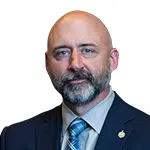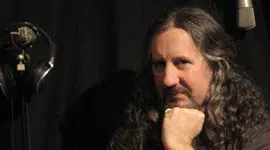Bruce-Grey-Owen Sound MP Alex Ruff is calling on the federal Liberal government to take action to support former Afghan interpreters, cultural advisors, and personnel employed in that country by the Canadian government.
With the planned withdrawal of all United States troops in Afghanistan by September 11th, and many of them already gone, the Taliban has been gaining ground in many parts of the country, leaving Afghans who have aided foreign troops at risk of being harmed or killed.
“If they’re willing to help us, why aren’t we willing to help them?,” says Ruff who is a retired colonel in the Canadian Armed Forces, who served two tours in Afghanistan (2007 and 2012).
He issued a statement Friday (July 9) saying, “Many of my former Canadian Armed Forces colleagues, the Conservative Party of Canada, and other Canadians have been calling for the federal government to show leadership and take immediate action”
Ruff says, “I’m publicly lending my voice to this call for action.” He notes he’s worked with many interpreters and advisors during his deployments in Afghanistan, and says they risked their lives daily to support Canadian soldiers, diplomats, and others.
“When I had interpreters working with me in Afghanistan especially in 2007 in Kandahar,” says Ruff, “They’re right beside you. They’re right up there on the front lines being put at risk. A number of them died even during our tenure in Afghanistan and at the same time their families are at constant risk.”
He says that risk they took while supporting Canada did not end when our country withdrew from Afghanistan in 2014.
He wants to remind the Canadian government and all Canadians, the Taliban do not follow international law.
“During my deployment in 2007, my combat team escorted an Afghan National Army company to Ghorak to reinforce an Afghan National Police outpost,” says Ruff, who explains, “Just prior to our arrival, a local eight-year-old boy was hung, and his father beheaded by the Taliban, solely because the boy delivered bread to the police. While talking with my own interpreters at that time, they shared their concerns explaining that this is the reason why many used aliases and always kept their face covered during interactions, in order to protect themselves and their families.”
Ruff says, “There are at least 115 former interpreters, cultural advisors, and locally employed persons and their families that supported Canada; although it has been estimated there are closer to 400-500 Afghans who need Canada’s help.”
He points to a 2009 special immigration program that enabled Canada to bring in Afghan nationals who had worked for our country during the war. Ruff says that program needs to be quickly updated and reinstated now, while there are still military personnel in that country, “We have a very short window. Collaboration is going to be needed with the Americans, the British, anybody that still has a foot on the ground because we don’t own that real estate or have a foot on the ground,” says Ruff.
There have been rumours reported on in national media that the federal government is looking into the issue but Ruff says, “I know from the feedback from people that I’m hearing on the ground and from the connections that I have, “You’re looking into it” doesn’t help them. This is a priority, urgent situation where their lives are on the line.”
In fact, Ruff thinks Canada should have an ongoing policy, “I don’t see how as a nation we don’t have a sort of a special immigration policy in place for any country.” He feels it should be no different for Iraq, or Canada’s missions in the Ukraine or Africa for example.
“If we’re willing, and they’ve passed the vetting process that we do before we ever hire or employ somebody” says Ruff, adding “And at the same time if their lives are being put at risk because they’ve decided to work for us and we’ve accepted that—I think that should be more than enough to at least allow them to be considered and go through a special immigration program.”
Ruff says he’s spoken to the group of Canadian Generals who wrote an appeal to Immigration Minister Marco Mendicino last week urging the government to bring these Afghan people to safety. Ruff says he’s also spoken to other contacts he has in the region about the issue and is taking part in a brain storming session about what more can be done.
“We can continue to put pressure on the federal government, and that’s not just me as a politician, that’s everybody, every Canadian out there,” says Ruff.
He’s disappointed Mendicino and the federal government haven’t announced plans to help, and adds, “I’m a little bit surprised that (Defence) Minister Sajjan hasn’t come out and said anything because he spent three tours in Afghanistan and was very dependent upon the local cultural advisers and interpreters.” Ruff says the Minister of Defence would understand the situation just as well as anyone in the federal government and should be providing advice to the Minister of Immigration.
“This is the least we can do,” says Ruff, adding, “The Canadian government must act now.”






